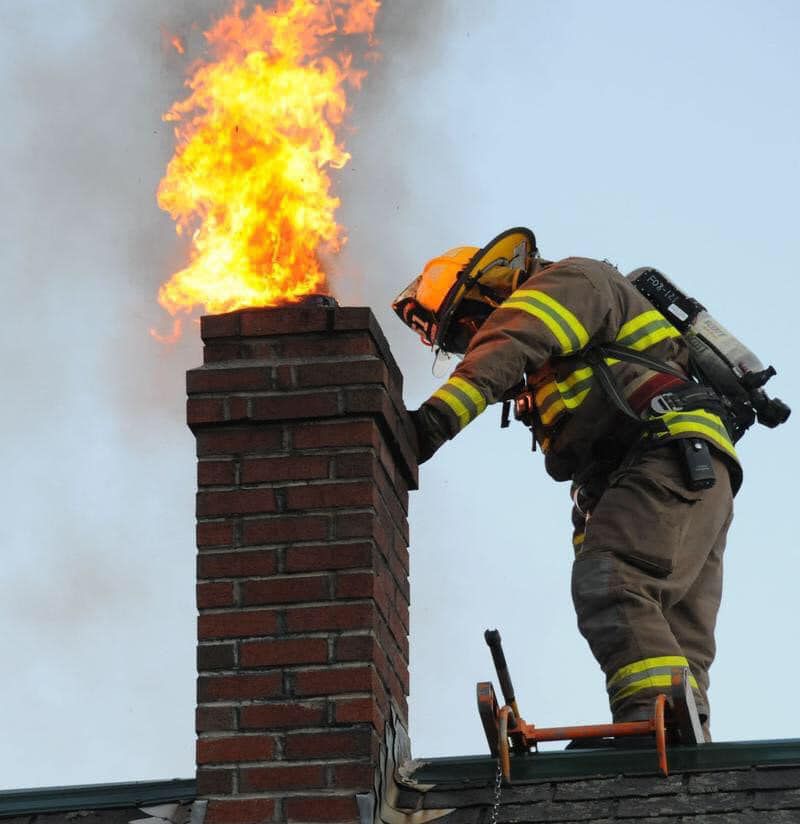MENTOR, Ohio — As you relax in front of your fireplace and enjoy the warmth it provides, the last thing you’re probably thinking about is how clean your chimney is.
“Sometimes, people don't do the maintenance of keeping their fireplace clean, especially the flue,” said Jerry Craddock.
Jerry Craddock, the public education specialist for the Mentor Fire Department, said in wood-burning fireplaces, a highly-flammable residue called Creosote builds up if you don’t annually clean your chimney, making your enjoyment very short-lived.
“It's like a tare substance that sticks to the walls of the flue, and it's actually fuel (that) catches fire,” said Craddock. “November until April, (those are) the cold winter months, so we can anticipate a chimney fire probably once a month. So, it's a busy time of year for us for chimney fires."

Most fireplaces built in the modern era were built to create an ambiance and not designed to heat a home.
“Just understand that you shouldn't overuse your fireplace,” said Craddock.
Indications of a chimney fire can include:
-Loud cracking and popping noises
-A lot of dense smoke
-An intense, hot smell
“If you see flames coming from the top of your chimney, that's not normal. You should only see smoke,” said Craddock.
Craddock said when in doubt, call 911.
“If you are suspicious of maybe there is a chimney fire, call us right away, get everyone out of the house. Call us right away, and we'll come and check it out,” said Craddock.
Craddock said gas chimneys don't often catch on fire, but there are still best practices, like making sure the heat can escape by opening the vent, also known as the damper.
“That heat is going directly into the room and it should be, you know, that exhaust. It should exhaust up that flue,” said Craddock.
Adding that regardless of the heat source, clean chimneys don’t catch fire, so prepare ahead of time.
“I would recommend having a professional chimney sweep come out and check out the fireplace before the beginning of season,” said Craddock.



